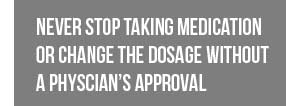- info@organindia.org |
- Toll-free Number- 18001203648
While a Donor can return to normal life with very few restrictions, the following lifestyle changes are advised for a successful life of a transplanted kidney.

Monitoring health After a patient is discharged from the hospital, he may be asked to monitor:
Medication guidelines The patient is responsible for taking the medications that have been prescribed for him. He should talk to his physician, pharmacist, transplant nurse, and/or coordinator to understand fully:
Diet and nutrition Avoid eating outside food. Eat clean and hygienic homemade food. Eating properly is an important part of the recovery process. A dietician will help in developing a customized diet chart, which provides a balanced diet and also the therapeutic requirements of the patients. (Keep in touch with the dietician for any diet related queries)
Exercise It is important that the recipient does adequate exercise after renal transplantation. It will help the recipient both physically and mentally and will prevent excessive weight gain. Any form of sports that require physical exertion, body contact such as wrestling and football, and water contacts like in swimming needs to be avoided.
Sexual life Some experience a return of their sexual desire after transplantation. Sexual relations with spouses can be normal. In some, resumption of sexual interest will be in a slow manner. Please seek the advice of the treating doctor in case of doubt.
Pregnancy Normal menstrual cycle will return in women recipients after transplantation. However it is better to avoid pregnancy in first two years of transplantation, as it may be dangerous both to mother and the child. Hence women recipients should take contraceptive measures to prevent pregnancy. If desired, after the first two years of transplantation, in consultation with the Nephrologist, pregnancy can be planned. Once pregnant, the recipient must stay under the close supervision of Nephrologist and Obstetrician. Women who have undergone successful transplantation can have normal pregnancy and normal healthy babies. However, some experience deterioration in their kidney function due to various factors during pregnancy.
Contraception Women recipients are advised not to use IUDs (Intra Uterine Device) as it can cause infections. Please discuss with the treating doctor about the appropriate contraceptive methods.
Smoking and Drinking Smoking is strictly forbidden as it increases the chances of malignancies (cancer) and vascular disease (heart attacks and strokes) in immuno-suppressed persons. It is better to avoid alcohol too. Alcohol can itself cause liver disease and it will also aggravate the incidence of acid peptic disease. Consult the treating doctor about occasional consumption of light drinks.
Vacations and travel If planning a trip to abroad that requires immunization, the patient should ask the transplant team. Always carry the latest medical prescription and medicines.
Avoiding infection Because immunosuppressive medications interfere with a patient’s natural immune system, he needs to protect himself consciously from infection after the surgery by taking the following precautions:
Take good care of your teeth by brushing two times a day and seeing the dentist twice a year for cleaning and check-up.
The Kidneys
Kidney Diseases
Recipient preparation and evaluation
Pre-transplant recipient (patient) evaluation
Kidney Transplant surgery